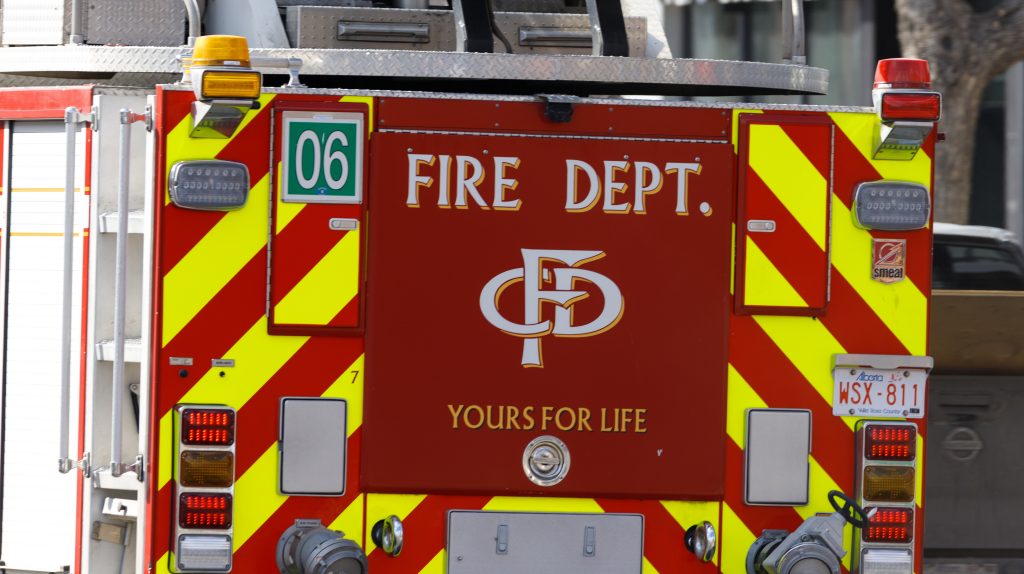Alberta NDP promises $3.3 billion surplus, corporate tax increase in 3-year plan

Posted May 16, 2023 5:34 pm.
Last Updated May 17, 2023 12:01 pm.
As the election campaign sails into its third week, the Alberta NDP released a three-year plan promising a $3.3 billion surplus Tuesday.
If elected, the plan includes an increase to the corporate tax rate to 11 per cent from eight per cent to increase revenue, with the party saying this would lead to an increase in $6.2 billion over the next three years, all while maintaining the “lowest corporate tax rate in the country.”
NDP finance critic Shannon Phillips released the plan, saying her party would hike spending in healthcare, build more schools, hire 4,000 more teachers, create primary healthcare teams and introduce tax credits to spur investment.
In addition, it is promising a cap on auto insurance rates, lower utility bills, a tuition freeze, and a $500 per child Kids Activity Tax Credit.
The party also says it will freeze personal income taxes and not introduce a sales tax, which the United Conservative Party (UCP) is also promising.
This also comes after Notley committed that, if elected, the government will eliminate small business taxes “for more than 100,000 small businesses.” The small business tax rate is currently two per cent on the first $500,000 of income generated.
Watch: Alberta UCP vows mandatory drug treatment, NDP to eliminate small business tax
Phillips said the UCP cut the corporate tax rate from 12 per cent down to eight per cent to launch a job boom and reduce corporate vacancy rates in Calgary, which she says has not happened yet.
“We understand the importance of maintaining a competitive tax rate, and that is why we eliminated the small-tech business tax rate (in our platform),” Phillips told reporters Tuesday.
“When the UCP lowered the corporate tax rate to eight per cent, it amounted to nothing but a no-strings-attached handout.”
If oil and gas prices remain steady as expected in the latest budget, the NDP predicts a $1.2 billion surplus for 2023 and about $1 billion for each of the two years after that.
In 2015, the NDP raised the corporate income tax rate to 12 per cent from 10 per cent under Notley’s leadership, while the UCP, under Jason Kenney, brought it back to eight per cent.
However, the three per cent tax hike is not sitting well with the UCP, with Brian Jean having some choice words for the NDP while in Calgary Tuesday.
“That is an investment killer,” Jean said.
“A 38 per cent increase in Alberta corporate taxes does not attract businesses.”
The UCP did not provide a similar platform Tuesday in response to the one from the NDP, but Jean said people can look to the 2023 budget.
Spending increased in multiple areas, including health care and education, while getting a $2.4 billion surplus.
Related Stories:
-
Alberta Budget 2023: $2.4B surplus expected
-
Alberta UCP leader Danielle Smith vows mandatory drug treatment recovery plan if elected
-
Alberta NDP say they would restore aerial wildfire fighting teams
During its term, the UCP deindexed personal income tax rates, costing Albertans $647 million between 2020 and 2022, according to a University of Calgary study. However, per the 2023 budget, the UCP recently reindexed those rates.
Moshe Lander, an economics professor at Concordia University in Montreal, says the NDP plan sounds great, but it may be “wishful thinking,” adding it relies on the price of oil and gas.
Notley’s party had to deal with dropped oil prices, which led the NDP to run into multibillion-dollar deficits and rising taxpayer-supported debt.
The UCP also had to deal with the same early in its term, when oil-price woes rose during the global COVID-19 pandemic.
“For this particular party, they really need to have an answer for that because it was their bad fortune that they governed during a period when that price plunged,” Lander told CityNews.
“They did the best they could, they cannot be held responsible for the following oil and gas price, but it was a disaster.”
He also says hiring thousands of teachers is “wishful thinking,” adding where the teachers and the people the party is promising to hire will come from.
“That makes the assumption that there’s 4,000 teachers lying around right now, waiting for job offers,” he told CityNews.
“If there are teachers, let’s say they are working in other industries, then to poach those teachers means that we’re going to be talking about labour shortages in other industries.”
He also has concerns about “market tampering,” saying offering caps on auto-insurance and reducing utility bills is interfering in the marketplace.
“When you start interfering with the market, there’s always these unintended consequences,” Lander said.
“It is possible they could have everything go their way. Everything could go right with the oil and gas price. But what they’re going to leave behind is a mess of these government fixes that some later government is going to have to try and reverse, undo or eliminate.”
Albertans head to the polls on May 29.
-With files from The Canadian Press
Editor’s note: A previous version of this article incorrectly said Moshe Lander was a professor at Concordia University in Edmonton. He is in fact a professor at Concordia University in Montreal.








